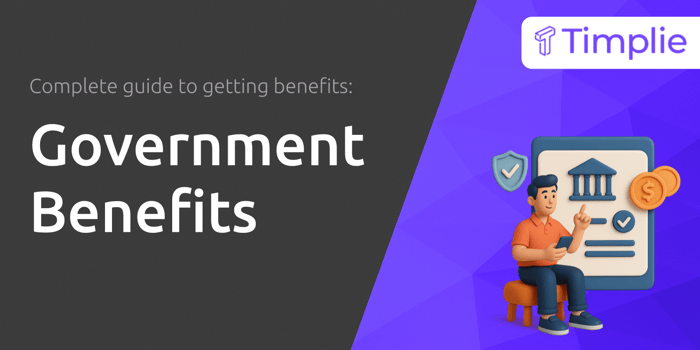Navigating the world of government benefits can often feel overwhelming, especially for those who are first-time applicants or unfamiliar with the process.
These programs are designed to support individuals and families in need, helping to cover essentials like food, housing, medical care, and income stability.
Understanding these benefits can prove to be an invaluable tool in securing financial stability and wellbeing.
The core purpose of government benefits, also referred to as public benefits or welfare, is to aid low-income individuals, families, and those with disabilities by providing essential financial assistance.
Through various programs, the government aims to reduce poverty, improve health outcomes, and offer a stable foundation for long-term financial planning.
Before diving into how to access these benefits, it’s helpful to familiarize yourself with the types of programs available and the eligibility requirements, which can vary significantly depending on the specific benefit.
Programs such as Supplemental Security Income (SSI), Social Security Disability Insurance (SSDI), Medicaid, Medicare, and housing assistance like Section 8 vouchers are just a few examples of the benefits accessible to those who qualify.
- Social Security programs like SSI and SSDI provide cash assistance to eligible individuals.
- Medicaid and Medicare offer health-related benefits for qualifying individuals.
- Housing assistance such as Section 8 helps secure affordable living accommodations.
- Educational and vocational benefits support skill development and job readiness.
- Each program has specific eligibility criteria and application processes.
In this guide, we will explore the diverse landscape of government benefits, discuss their advantages and challenges, and provide insights into applying for these essential services.
Benefits of Government Programs
Government benefits provide substantial support to individuals and families needing financial or welfare assistance. They play a critical role in ensuring that vulnerable populations can meet their basic needs and work towards a more stable future.
Who Can Benefit from Government Assistance?
Government assistance is primarily aimed at supporting individuals and families facing economic hardships or specific life challenges, ensuring they do not fall through societys cracks.
- Low-income families looking for financial and food assistance.
- Individuals with disabilities needing medical and financial support.
- Elderly citizens who require healthcare and income stability.
- People facing temporary financial crisis due to unemployment.
By addressing various socio-economic needs, government benefits foster a more balanced and equitable society.
Evaluating Pros and Cons of Government Benefits
Government benefits offer substantial advantages, especially for those in dire need. However, like any large-scale program, they come with potential drawbacks.
Pros
-
Essential Support
The primary advantage of government benefits is their ability to provide much-needed assistance to vulnerable groups.
-
Reducing Poverty
These benefits directly address poverty and inequality by enabling basic standard living for all citizens.
-
Health Outcome Improvement
Access to healthcare benefits leads to improved health outcomes, resulting in a healthier population overall.
Cons
-
Complex Eligibility Criteria
Understanding and meeting the eligibility requirements for benefits can be daunting.
-
Limited Benefit Amounts
Sometimes, the assistance provided is not enough to cover all necessary living expenses.
-
Stigma and Dependence
Recipients often face societal stigma, and there is concern about over-reliance on government support.
Why Timplie Recommends Government Benefits
At Timplie, we understand the importance of financial security and stability that government benefits offer to those in need.
These programs not only provide immediate relief but also support long-term financial planning.
We recommend taking advantage of these programs to enhance quality of life and secure a more stable future, particularly if youre dealing with economic hardships or disabilities.
- Provides essential support for those who need it the most.
- Reduces socio-economic disparities by offering equitable opportunities.
- Facilitates long-term financial stability through structured assistance programs.
Frequently Asked Questions about Government Benefits
What are public benefits?
Public benefits are government-provided assistance programs that support low-income or disabled individuals and families.
Who qualifies for SSDI?
SSDI is available to disabled individuals with sufficient work credits and an inability to work for at least a year.
Can one receive both SSI and SSDI?
Yes, if eligible, a person can receive both SSI and SSDI simultaneously.
What income limits apply for SSI?
SSI applicants must have resources below $2,000 and income below substantial gainful activity limits.
How to find government programs for assistance?
Use government benefit finder tools or contact local state social service agencies for guidance.
Final Thoughts
Navigating the world of government benefits may seem intimidating, but with the right knowledge and preparation, it can become a manageable and rewarding process.
Comprehensive understanding and awareness of what is available can significantly enhance the financial and social well-being of those eligible.
At Timplie, were committed to providing insights and guidance to help you make the most of these invaluable resources.










